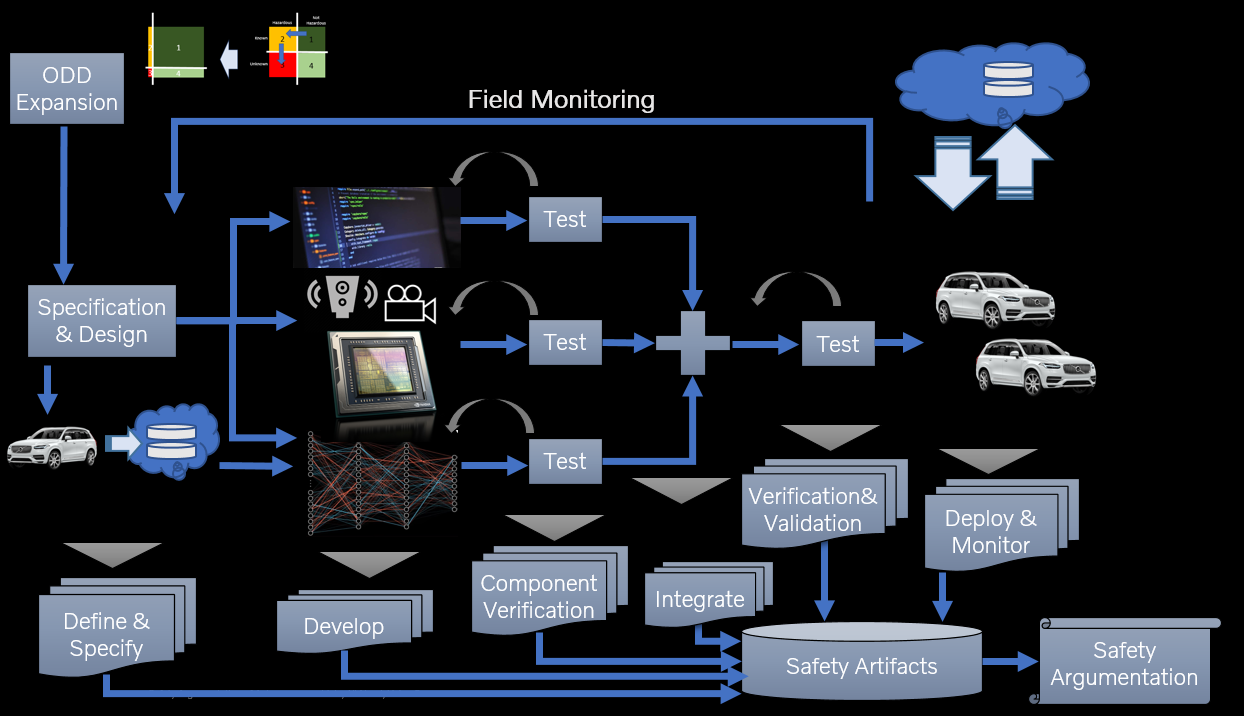How to deliver safe autonomous vehicles by continuous development and deployment?
This is what the project ASSERTED - Assuring Safety for Rapid and Continuous Deployment for Autonomous Driving – will find out.
Autonomous vehicles have a huge potential to contribute to a safe and sustainable mobility system. However, it is also clear that it is challenging to introduce the vehicles to the market due to the safety relevance and complexity of such systems. In the SAFER-associated project ASSERTED the research goal is to explore methods to better manage the safety of autonomous driving in a context of rapid and continuous development and implementation.
Ali Nouri, PhD student in the project at Volvo Cars, says:
“To achieve this, we aim to understand and find solutions on how to adapt the safety argumentation for automated driving to this new context and which methodological and technical solutions can handle the identified challenges”.

The results from the project will include safety concepts and new methodological approaches to support safety arguments for autonomous driving vehicles in the context of rapid and data-driven development and implementation cycles.
Project plan in brief
The researchers will look into how safety argumentation of an AD system can be systematically and verifiably modelled for continuous function adaptation and deployment in the context of SOTIF, functional safety, cyber-security, and coming standard ISO TS 5083. Also, the research questions about what safety concepts and methodological instruments enable and support rapid continuous development and deployment by learning from field data that also work at scale of an automotive OEM, will be prioritized by the team.
A systematically survey for current scientific literature to identify possible methodologies that may be suitable to be applied for gradual functional development and deployment of safety-relevant systems will be conducted as a first step. For the identified methodologies, their applicability will be evaluated in a systematic way. Then selected methodological candidates from the literature study will be expanded to systematically analyze their potential for safety argumentation for gradual function development of safety-critical systems using in-situation case studies or experiments within the relevant industrial context. Finally, the research findings will be validated in an industrial setting to be able to evaluate the correctness and to some extent generalizability.
The results of the project will be disseminated through academic publications in relevant and high-impact scientific journals and at international conferences. The team also plans to actively reach out to standardization bodies such as ISO in the area.
The four-year project started in November and has a budget from Vinnova on about 4,5MSEK. Volvo Cars, Chalmers and Zenseact are collaborating in this project. The project is associated to SAFER research area Systems for accident prevention and autonomous driving.
